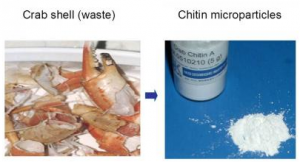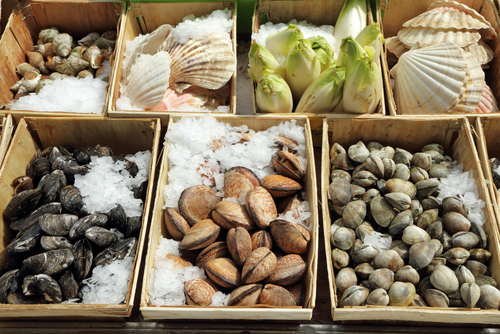Inflammatory Bowel Diseases (IBDs) are a class of autoimmune disorders characterized by chronic or recurring inflammation of the gastrointestinal tract which can be painful and debilitating, and for which there is no known cure. The two most common IBDs are Ulcerative Colitis and Crohn’s disease. IBDs should not be confused with irritable bowel syndrome (IBS), a disorder that affects the motility (muscle contractions) of the colon. Sometimes called “spastic colon” or “nervous colitis,” IBS can be a miserable affliction, but is not characterized by intestinal inflammation and therefore, a much less serious disease than ulcerative colitis or crohn’s disease to neither of which it bears any direct relationship.
Pharmaceutical medications currently used to treat IBD include antibiotics, corticosteroids and other biologic anti-inflammatory drugs are expensive, don’t always work or at best are only partly or temporarily effective, and are associated with a variety of unpleasant and undesirable side-effects. Consequently, patients with IBD are likely to consider or try complimentary or alternative approaches to treating their illness, and there may soon be a new one for sufferers to check out.
 Yoshimi Shibata, Ph.D., a professor of biomedical science in the Charles E. Schmidt College of Medicine at Florida Atlantic University (FAU), in Boca Raton, FL, has received a $380,552 grant from the National Institute of Complementary and Alternative Medicine of the National Institutes of Health (NIH) to further investigate how microparticles called chitin, that is found in crab, shrimp and lobster shells, have anti-inflammatory mechanisms that could lead to the development of novel preventive and therapeutic strategies for individuals who suffer from IBD and other diseases.
Yoshimi Shibata, Ph.D., a professor of biomedical science in the Charles E. Schmidt College of Medicine at Florida Atlantic University (FAU), in Boca Raton, FL, has received a $380,552 grant from the National Institute of Complementary and Alternative Medicine of the National Institutes of Health (NIH) to further investigate how microparticles called chitin, that is found in crab, shrimp and lobster shells, have anti-inflammatory mechanisms that could lead to the development of novel preventive and therapeutic strategies for individuals who suffer from IBD and other diseases.
Lobster, crab and shrimp shells are a major waste material category in the seafood industry, so chitin is abundant and relatively low-cost to prepare. Chitin microparticles are also non-toxic, biodegradable and non-allergenic, and therefore safe for oral ingestion as a dietary food supplement.

Dr. Shibata is an immunologist whose research focuses on macrophages, which are multifunctional cells that are essential for the host protective immune systems and inflammation. His collaborators on the grant project are Zhongwei Li, Ph.D. also of FAU’s Charles E. Schmidt College of Medicine; C. Kathleen Dorey, Ph.D. at Virginia Tech Carilion School of Medicine; and Emiko Mizoguchi, M.D., Ph.D., with the Center for the Study of Inflammatory Bowel Disease, Massachusetts General Hospital, Harvard Medical School.
An FAU release notes that many scientists believe that most or perhaps all chronic diseases stem from chronic inflammation, which plays a direct role in diseases such as IBD, diabetes, cardiovascular disease, cancer, asthma and many other diseases.
According to the Centers for Disease Control and Prevention (CDC), normally the immune cells protect the body from infection, but In people with IBD, the immune system mistakes food, bacteria, and other materials in the bowel for foreign substances and attacks the cells of the intestines, sending white blood cells into the intestinal lining where they produce chronic inflammation. When this happens, the patient experiences symptoms of IBD, which in Crohn’s includes disease can include persistent diarrhea (loose, watery, or frequent bowel movements), cramping abdominal pain, fever, and, at times, rectal bleeding. Loss of appetite and weight loss also may occur. The disease is also not always discrete to the gastrointestinal tract, and can affect the joints, eyes, skin, and liver. Fatigue is another common complaint.
With ulcerative colitis, approximately half of all patients will have mild symptoms, while the other half may suffer from sporadic bouts of severe abdominal cramping, bloody diarrhea, nausea, and fever.
“Under normal conditions, inflammation is a process that actually protects health and promotes healing by mobilizing the immune system to attack invading bacteria and kill them through the immune system reaction,” Dr. Shibata observes. “Chronic inflammation on the other hand harms instead of heals because the immune system attack never stops.”
Crab, shrimp and lobster shells contain carbohydrates, calcium and protein. Dr. Shibata and his colleagues have refined the active carbohydrates in these crustacean carapaces by removing the calcium and protein and making small particles with the carbohydrates that are similar to bacteria, called mimetic microbes. The researchers have developed an oral form of this substance as a dietary supplement, and the team has demonstrated that oral administration of chitin microparticles reduces disease conditions of allergic asthma, food allergies, colitis and food-borne infections in animal models and seasonal allergies in humans. They have also conducted additional studies to advance their understanding of the mechanisms underlying the effects of chitin microparticles on macrophage activation.
“In this new study, we are going to focus on intestinal macrophages and how these mimetic microbes we have developed can produce anti-inflammatory activities, normalize the gut bacterial flora and ultimately improve the symptoms associated with inflammatory bowel disease,” says Dr. Shibata.
Five groups of drugs are currently used to treat Crohns disease: aminosalicylates (5-ASA), steroids, immune modifiers (azathioprine, 6-MP, and methotrexate), antibiotics (metronidazole, ampicillin, ciprofloxin, others), and biologic therapy (inflixamab).
The four major classes of medication used to treat ulcerative colitis are aminosalicylates (5-ASA), steroids, immune modifiers (azathioprine, 6-MP, and methotrexate), and antibiotics (metronidazole, ampicillin, ciprofloxin, and others).
As fore-noted, none of these drug therapies are completely or mostly satisfactory and effective, especially over the medium to long term. The CDC says two-thirds to three-quarters of patients with Crohns disease will require surgery at some point during their lives, an escalation of treatment that becomes necessary when medication can no longer control the symptoms. For one-quarter to one-third of patients with ulcerative colitis, medical therapy is not completely successful or complications arise — circumstances under which surgery may also be considered for removal of the diseased colon (colectomy). Unlike with Crohn’s disease, which can recur after surgery, ulcerative colitis is considered “cured” once the colon is removed.
IBD is one of the five most prevalent gastrointestinal disease burdens in the United States, with an overall health care cost of more than $1.7 billion annually. According to Crohns & Colitis Foundation of America, more than 1.4 million Americans suffer from Crohn’s disease and ulcerative colitis, and approximately 70,000 new cases of IBD are diagnosed each year. Children under the age of 18 are the fastest growing population of IBD patients.
Crohns disease and ulcerative colitis are chronic conditions without a known medical cure and commonly require a lifetime of care. The CDC reports that each year in the United States, IBD accounts for more than 700,000 physician visits, 100,000 hospitalizations, and disability in 119,000 patients. And as noted, over the long term, up to 75% of patients with Crohn’s disease and 25% of persons with ulcerative colitis will require surgery.
 “The causes of inflammatory bowel disease and the factors that influence its activity are not known, says David J. Bjorkman, M.D., M.S.P.H., a gastroenterologist and dean and executive director of medical affairs for FAU’s Charles E. Schmidt College of Medicine. “The impact of this condition can range from mild to severe debilitation,” he adds.
“The causes of inflammatory bowel disease and the factors that influence its activity are not known, says David J. Bjorkman, M.D., M.S.P.H., a gastroenterologist and dean and executive director of medical affairs for FAU’s Charles E. Schmidt College of Medicine. “The impact of this condition can range from mild to severe debilitation,” he adds.
“The important research that Dr. Shibata and his colleagues are conducting will also engage our graduate and undergraduate students in clinically-relevant immunology research, encourage their scientific development, and give them a deeper appreciation of  complementary and alternative medicines,” observes John W. Newcomer, M.D., executive vice dean of FAUs Charles E. Schmidt College of Medicine and interim vice president for research at FAU.
complementary and alternative medicines,” observes John W. Newcomer, M.D., executive vice dean of FAUs Charles E. Schmidt College of Medicine and interim vice president for research at FAU.
The Dietary Anti-inflammatory Chitin in Colitis (R15AT008252) research project is funded by the National Institute of Complementary and Alternative Medicine (NICAM) of the National Institutes of Health ($380,552).
Florida Atlantic University, established in 1961, officially opened its doors in 1964 as the fifth public university in Florida. In 2014, the University, with an annual economic impact of $6.3 billion, serves more than 30,000 undergraduate and graduate students at sites throughout its six-county service region in southeast Florida. For more information, visit http://www.fau.edu
Sources:
The Charles E. Schmidt College of Medicine at Florida Atlantic University
the Centers for Disease Control and Prevention
Crohns & Colitis Foundation of America
Image Credits:
The Charles E. Schmidt College of Medicine at Florida Atlantic University

